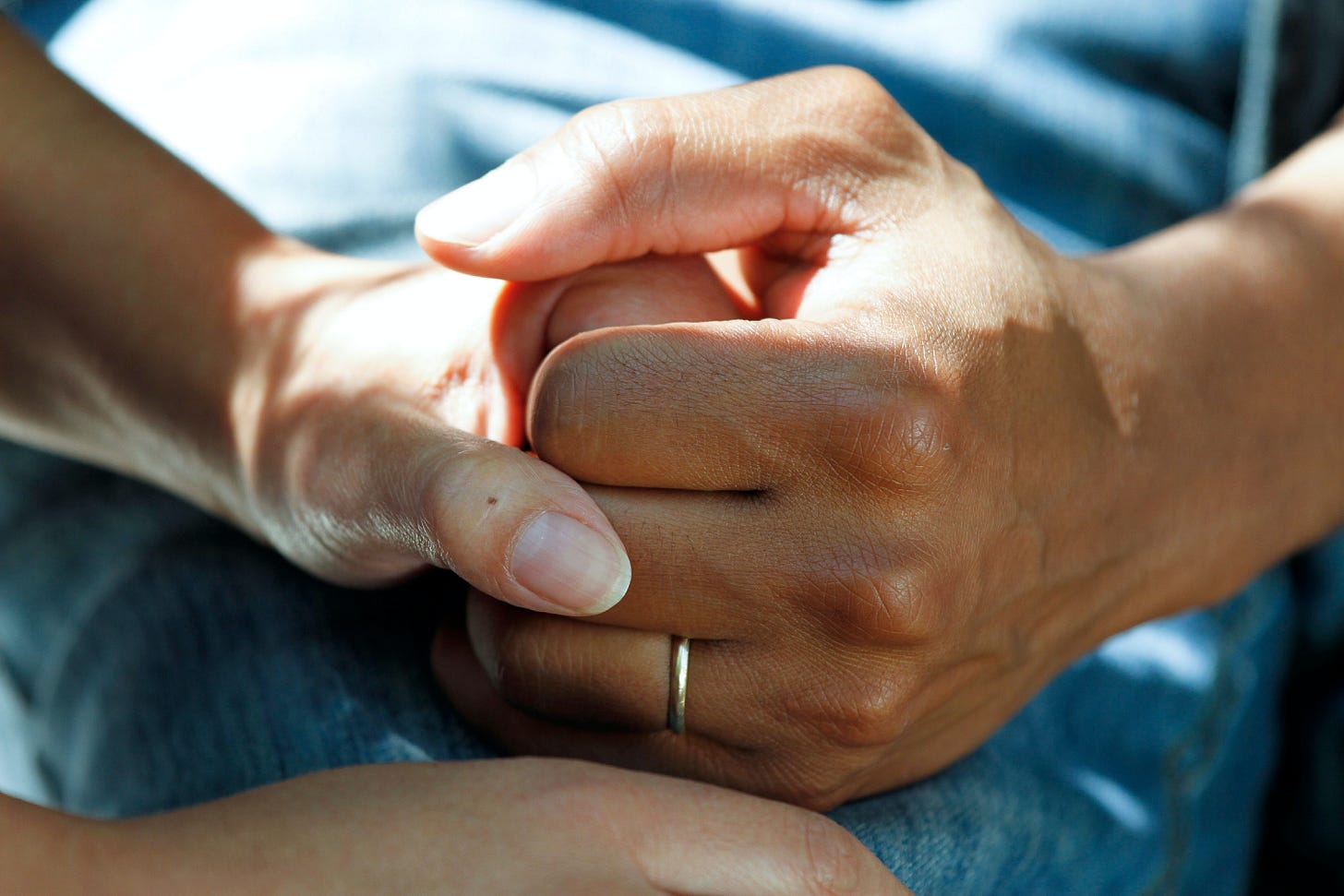
In this bonus episode, illustrator and author Eliza Wheeler returns to discuss how to support a loved one with chronic illness, navigating her own symptoms alongside a partner who also has chronic conditions, and more. Hear more from Eliza in episode 15 at rethinkingwellness.substack.com.
Eliza Wheeler is an illustrator and author of books for children, and was a recipient of the Sendak Fellowship Award. Her first picture book, Miss Maple’s Seeds, was a New York Times best seller, and her newest book Home In The Woods is based on the true story of her grandmother’s childhood experience of living in a tar-paper shack in the woods with seven siblings and their single mom. Eliza grew up in the northwoods of Wisconsin, lived in Los Angeles, CA for a time, and now calls Minneapolis, Minnesota home. Learn more about her work at wheelerstudio.com, and subscribe to her Creativitea Time Substack.
Resources and References
Eliza’s books
Eliza’s Substack
NYT article on “helped, heard, or hugged”
Christy’s new book, The Wellness Trap: Break Free from Diet Culture, Disinformation, and Dubious Diagnoses and Find Your True Well-Being
Christy’s online course, Intuitive Eating Fundamentals
Subscribe on Substack for bonus content and more
Transcript
Disclaimer: The below transcription is primarily rendered by AI, so errors may have occurred. The original audio file is available above.
Christy Harrison [00:00:00] Hey there. Welcome to this bonus episode of Rethinking Wellness for Paid Subscribers. I'm Christy. And in this episode, I'm talking more with illustrator and author Eliza Wheeler, who is this week's guest in episode 15 of the main podcast. She's here to answer some bonus questions about how to support a loved one with chronic illness, and we talk about navigating her own symptoms alongside a partner who also has his own chronic conditions, what's not helpful to hear when having a flare-up, and lots more.
Christy Harrison [00:00:29] And one quick announcement before the interview. My intuitive Eating Fundamentals course, which Eliza mentioned in the main episode as something that was helpful in her healing, is enrolling a new cohort now. It's a great opportunity to join and be part of a group of people going through the course at the same time. You'll get access to a forum where you can connect with other members during the course, monthly Q&As with me, and well over 100 hours of content teaching you the principles of intuitive eating and troubleshooting the common pitfalls. So to learn more and sign up for that, go to christyharrison.com/course, and sign up before September 5th to get access to this new cohort.
Christy Harrison [00:01:09] Now, without any further ado, let's go to this bonus conversation with Eliza Wheeler. So, Eliza, thank you so much for coming back for this bonus episode. I'm really excited to talk with you some more.
Eliza Wheeler [00:01:23] Yeah, happy to do this.
Christy Harrison [00:01:26] So I wanted to talk to you about how to support a loved one with chronic illness because you've been through a lot in chronic illness yourself and have a lot of insight into that, I think from your experience. So can you share a little bit about what you've learned about that process?
Eliza Wheeler [00:01:42] Yeah, you know, I think through the years of having chronic illness, that isn't always consistent, right? It's like you you don't wake up and know you can't have a schedule of like, what are my sick days, what are my days where I'm going to have some energy, you know. So it makes it really difficult to it's like your life has to have this degree of flexibility. I think that is maybe more unique to the experience of living with chronic illness. And you know that this goes for physical illness, but also mental illness. My husband suffers from pretty severe anxiety and we've really had to learn how to treat each other on during our, you know, episodes or bad days.
Eliza Wheeler [00:02:45] So for me, that would look like, you know, I'm getting a migraine, I have a migraine, and then I could be down for up to three days in bed trying to kind of get out of this loop pain loop that I'm in, you know? And so I think it's all about communication, right? I mean, it sounds kind of like it's oversimplifying, right? But like learning to talk to each other, talk to your loved one and to be able to ask them.
One main note that I would have is if somebody is right in the midst of severe pain or an episode, the last thing that I want when I'm going through that is someone who's saying like, why is this happening? What triggered it? And kind of interrogating the situation. And I think that was something I we found ourselves doing to each other, you know, when he was having panic attack or severe anxiety, I would be like, what? What caused it, you know, and try to, like, fix it. Right. And I think the big thing with relating to a loved one is just you really have to know, like, you cannot fix this for them. And it's kind of the hard truth of it.
Christy Harrison [00:04:14] So hard because we want to make them feel better. We want to help in any way we can. I think sometimes too, there's this sense of like feeling responsible, like that you did something to cause it.
Eliza Wheeler [00:04:25] Yeah. What happened? Yeah.
Christy Harrison [00:04:28] Right. What did I do? Or what can I do to fix it or. Yeah, what can we do to make sure this doesn't happen again?
Eliza Wheeler [00:04:34] Exactly. Yes.
Christy Harrison [00:04:36] That can feel so blaming, I can imagine, for the person on the other side. I know for me, it has to when people are like, what about this? What about that? Have you tried this? Have you tried that? It's like.
Eliza Wheeler [00:04:46] Okay, yeah, right. Let me just get through this and. Yes, exactly. Yeah. And I think, you know, there are are levels of stress on both sides to be managed. Right. And, you know, understanding that in that moment, frustration and impatience or blame or judgment, those are kind of the most unhelpful things for us in those moments. They just kind of compound the guilt that you feel for having to go deal with this instead of doing what you planned on that day, you know, together.
But I think what's been really nice—probably the wrong wrong phrase to use, but what's been helpful with, you know, Adam and I, my partner, is being able to always offer compassion first and and acknowledge like, you know, I'm I'm so sorry that you're struggling today. I'm so sorry that you're having a hard time. You know, we're going through this and just that simple. Is there anything I can do to make you more comfortable, you know, or just, like, put it out to them? Like, let me know if there's anything you think of and I'll be here.
Eliza Wheeler [00:06:11] But even if I was in the midst of a migraine, even asking the question, like, what do you need? It was like, I can't even answer a question. So a lot of it is like talking about it when you're not in the midst of that episode. Because we're all different, right? So maybe some people need more attention and other people need less.
I'm definitely in the like, please let me close the door and lay in the dark and just wait til I'm functional again. But when we talked about it ahead of time, it was I was able to identify like, Oh yeah, there's this particular coffee drink is kind of a nice, soothing thing when I'm getting out of an episode. Or for me, there was a very particular Indian curry dish from a restaurant nearby. That was I always felt good after a migraine episode. And so I kind of said, Yeah, you know, if it's within your availability and you can go grab that stuff so it's waiting in the fridge for after this, that that's something you can do that helps, you know. And, and yeah.
What about for you?














